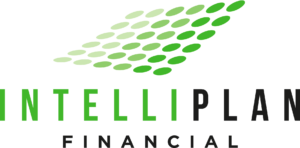Everyone’s retirement looks a little different, but many retirees face the same challenges and risks.
Understanding and preparing for these potential financial risks is key to protecting your wealth in retirement.
At Intelliplan Financial, our financial retirement advisors take a holistic retirement risk management approach to address common risks, so let’s start there.
What is Holistic Approach to Retirement Income Planning?
A holistic financial plan considers all aspects of your financial life. For example, At Intelliplan, our comprehensive approach is built on the following five pillars of wealth management:
- Financial Planning
- Asset Management
- Tax Management
- Protection Planning
- Legacy Planning
By considering every piece of your financial puzzle in one plan, we can ensure they collectively work towards your long-term financial goals and address the common risks you’re likely to face.
Common Risks in Retirement
Let’s explore seven key retirement risks and how a holistic approach can help you secure your financial future.
1. Sequence of Returns Risk
The potential negative impact of poor investment returns early in retirement when you start withdrawing funds.
How does it affect my retirement?
If you encounter a series of negative returns early in retirement while simultaneously withdrawing funds, it can dramatically reduce your portfolio’s overall value. Even if the market recovers later, your depleted portfolio may not be able to take full advantage of the upswing. This effect can lead to running out of money much earlier than anticipated, even if the average returns over the entire retirement period are positive.
How a holistic approach can help:
By implementing a holistic approach using The Bucket Plan® strategy, you securely divide a portion of your assets into short-term “Now”, medium-term “Soon”, and long-term “Later” buckets. This ensures you have liquid assets for immediate needs while allowing longer-term investments time to grow, mitigating the impact of early market downturns.
2. Longevity Risk
The possibility of outliving your savings due to increased life expectancies.
How does it affect my retirement?
A longer lifespan means your retirement savings need to last for a more extended period. Extended retirements increase the likelihood of facing unexpected expenses or financial challenges. The risk of running out of money in later years can lead to a reduced standard of living or financial dependence on others.
How a holistic approach can help
A holistic financial plan considers more than just investments to account for extended lifespans and other risks. It includes insurance products, tax management, and more to help supplement and protect your income over time.
3. Inflation Risk
The erosion of your buying power over time due to rising costs.
How does it affect my retirement?
What seems like a substantial nest egg today may not cover your expenses in 20 or 30 years. Your fixed income sources may lose real value over time if they don’t adjust for inflation. Relying on fixed incomes in retirement leaves you especially vulnerable to unexpected spikes in inflation.
How a holistic approach can help
By considering asset management as part of your holistic plan, you can include investments designed to outpace inflation. You can also leverage insurance products in your plan, like the Bank On Yourself® strategy, which offers the potential for increasing cash value and dividends that can help maintain your purchasing power over time.
4. Market Risk
The impact of overall market volatility on your retirement portfolio.
How does it affect my retirement?
Significant market downturns can reduce the value of your retirement savings, potentially forcing you to sell assets at a loss to meet living expenses.
Market volatility can create emotional stress and lead to poor decision-making, such as panic selling during downturns.
Overexposure to market risk can jeopardize your ability to meet short-term financial needs.
How a holistic approach can help
We recommend creating a diversified portfolio aligned with your risk tolerance and goals. By incorporating non-correlated assets and preserving portions of your assets with The Bucket Plan®, we add a layer of protection against market volatility, providing a stable source of funds regardless of market conditions.
5. Healthcare Cost Risk
The potential for rising medical expenses to deplete your retirement savings.
How does it affect my retirement?
Unexpected medical emergencies or chronic conditions can quickly erode your retirement savings. Long-term care costs, which are often not covered by traditional health insurance or Medicare, can be particularly devastating. The unpredictable nature of healthcare needs makes it challenging to budget accurately for these expenses in retirement.
How a holistic approach can help
Protection or insurance planning is an important pillar of our holistic wealth management approach. It includes a comprehensive risk assessment and evaluation of long-term care insurance needs.
6. Policy Risk
The effect of changing government policies, tax laws, or benefits programs on your retirement plan.
How does it affect my retirement?
Changes to Social Security or Medicare could affect your expected retirement income or increase your out-of-pocket healthcare costs.
Tax law changes could impact the tax efficiency of your retirement withdrawals or the value of certain tax-advantaged accounts.
New regulations could affect the performance or availability of certain investment vehicles or financial products.
How a holistic approach can help
We diversify your retirement strategy across multiple areas in a holistic plan, reducing reliance on any single source of income or benefits. Our approach includes tax-favored strategies like life insurance, which can provide stability amid changing policies.
7. Income Tax Risk
The effect of current and future tax rates on your retirement income and savings.
How does it affect my retirement?
Higher-than-expected tax rates in retirement can reduce your spendable income and force you to withdraw more from your savings to maintain your lifestyle.
Required Minimum Distributions (RMDs) from tax-deferred accounts can push you into a higher tax bracket, potentially increasing your overall tax burden.
Changes in tax laws can affect the tax efficiency of your retirement withdrawal strategy.
How a holistic approach can help
A holistic approach incorporates tax management to help grow and protect your wealth by actively managing, or rather minimizing your taxes. Tax management strategies include tax diversification across various account types, strategic Roth conversions, and tax-efficient withdrawal strategies.
Secure Your Retirement Today
At Intelliplan Financial, we specialize in creating personalized, holistic retirement plans that address these risks and adapt to your unique needs and goals.
Remember, successful retirement planning is not just about accumulating wealth, but also about protecting and managing it effectively. Understanding and preparing for common risks like these can significantly increase your peace of mind in retirement.
Ready to secure your retirement with a comprehensive strategy? Get in touch with Intelliplan Financial to schedule a consultation with one of our experienced advisors and learn how our holistic approach can benefit you.
Together, we can create a holistic retirement plan that addresses these risks and helps you achieve your long-term financial goals.
Disclosure: Financial Planning and Advisory Services are offered through Prosperity Capital Advisors (“PCA”), an SEC-registered investment adviser. Registration as an investment adviser does not imply a certain level of skill or training. Intelliplan Financial and PCA are separate, non-affiliated entities. PCA does not provide tax or legal advice. Insurance services offered through Intelliplan Financial are not affiliated with PCA.
Financial Planning and Advisory Services are offered through Prosperity Capital Advisors (“PCA”), an SEC registered investment adviser. Registration as an investment adviser does not imply a certain level of skill or training. Intelliplan Financial and PCA are separate, non-affiliated entities. PCA does not provide tax or legal advice.






